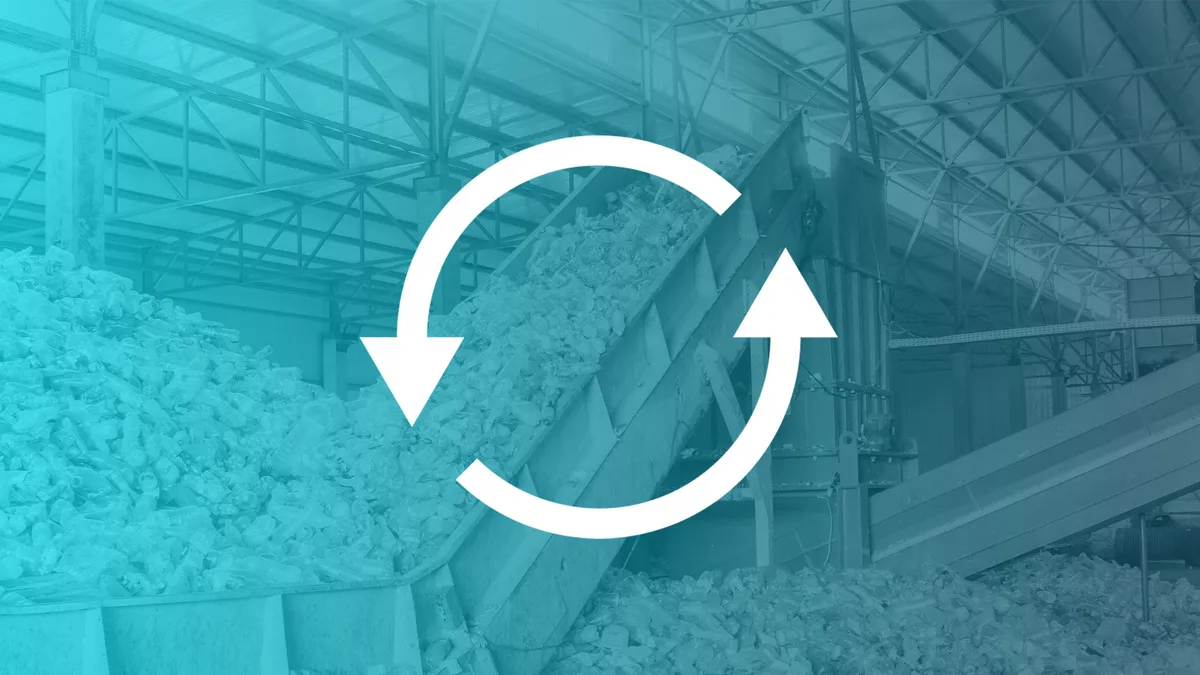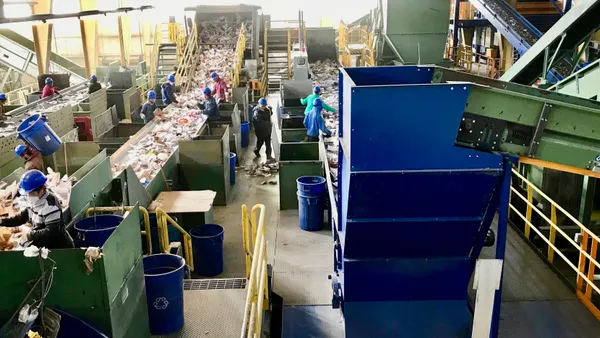Dive Brief:
- Politico has released a circular economy index ranking the European Union's (EU) progress on reducing waste and boosting recycling, based on data from Eurostat and the European Parliament.
- Politico evaluated seven key metrics — annual municipal waste per person, annual food waste per person, municipal recycling rate, trade of recyclable raw materials, material reuse rate, circular economy patents and investments in circular economy sectors — to rank the EU's 28 countries.
- Germany, United Kingdom, France, Czech Republic and Italy rounded out the top five countries, while Greece (26), Malta (27) and Cyprus (28) trailed behind the pack.
Dive Insight:
Germany took the crown on this list due to its recycling rate and patents related to the circular economy, which Politico estimates at 1,260 — significantly more than any other country in the EU, with France second in that category at 542 patents. Germany is also particularly well-known for its waste-to-energy sector. The country takes about 5% of its waste to landfill, 65% goes toward recycling and 30% goes to WTE. Germany is also the testbed for Volvo's newest electric refuse truck, the FE Electric, capable of carrying up to 27 metric tons.
Overall, the EU has made significant efforts to promote a circular economy, and earlier this year adopted a new set of measures, including an EU-wide strategy for plastics in the circular economy, a monitoring framework on progress and a report on critical raw materials. The union also has set targets including recycling 65% of municipal waste and 75% of packaging waste by 2030, and banning the landfilling of separately collected waste. According to Politico's estimates, Germany is the only country that has already hit the 2030 municipal recycling target, with Slovenia, Austria, Belgium and the Netherlands trailing closely behind. Chances for Greece, Cyprus, Romania and Malta to reach the goal look bleak.
One particular country to watch as the EU moves toward these targets is the United Kingdom, which is slated to leave the EU on March 29, 2019 following Brexit negotiations. As it inches toward independence, the UK is responsible for developing its own legislation around waste management, and is currently considering a tax on firms that package goods in unrecyclable plastics in an effort to eliminate plastic waste by 2042.











